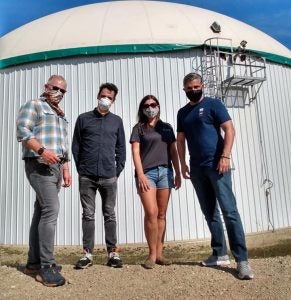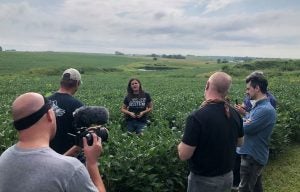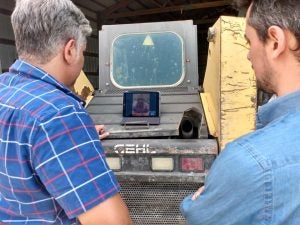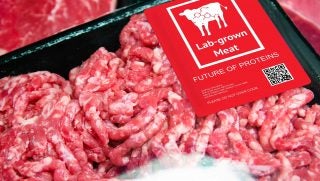The backlash from the agricultural community against Burger King’s #CowsMenu ad campaign on social media was a swift and sharp one. The science, the terminology, the presentation, the irreverence — it was as if Burger King could do no right.
When I first saw the ad, I could barely finish it. I sent out a frustrated tweet. And based on how the #boycottburgerking hashtag started trending, I wasn’t the only one.
@BurgerKing has officially made the WORST restaurant anti-science, anti-farmer marketing I’ve seen in a while. The new Chipotle? ?
Its rare I get this fired up but they deserve extreme pushback on this.
Remember that time BudLight pissed on farmers?
Let em have it, #agtwitter. pic.twitter.com/3HtCOT0cLC— Farm Babe (@thefarmbabe) July 14, 2020
Much to my surprise, after tweeting Burger King Chief Marketing Officer Fernando Machado, I received an email invitation to have a Zoom call — and it went very well. We had a reasonable and thoughtful discussion, and he came across as apologetic for what he had done. I invited Machado to my livestock and row-crop farm in Iowa, and he eagerly took me up on it.
I wasn’t sure what to expect, but I knew I wanted to make it a memorable and educational experience. I wanted to bring home the fact that farmers care greatly about the planet, that sustainability is always in the forefront of our minds, and that farmers work hard to do more with fewer inputs and labor resources, innovatively mitigate methane, and reduce our carbon footprint, all day, every day. I felt that this approach would be most relatable to the executive — a common ground we all care about.
To achieve that, I expanded my approach to include more than just our farm.
On August 12 and 13, the farm tour began with Machado and Gustavo Lauria, co-founder of the We Believers ad agency, which was responsible for the content of the #CowsMenu ad. For the first day, I took them to White Gold Dairy near Madison, Wisconsin. There, Machado saw an on-site methane digester, which holds 90,000 gallons of manure. The methane is trapped and turned into renewable natural gas that is sold back to the grid and used to power homes and business. Poop to power, who knew? It was a great example of how farmers improve the industry’s carbon footprint by reducing methane. (Hey, Burger King, it’s more than just lemongrass!)
Bob Powell (at left in the photo below), CEO of Brightmark, was on hand to discuss anaerobic digestion and how the large-scale manure tanks are turned into big “stomachs” that digest all of the organic materials. Also shown is Machado (right), Lauria (second from left), and, of course, myself.

The following day, we met on my own Iowa farm, where we have beef, sheep, and row crops.

As an educator at heart, I enjoyed explaining how we care for the water, soil, and animals. How we use science to maximize rate of gain and reduce our carbon footprint and how we eliminate runoff and manage nutrients and other farm inputs through technology and the adoption of the latest research. My friend, Kim Bremmer, who has a background in dairy science and ruminant nutrition, joined us.

Also on hand was Andrew Wheeler, who does public relations for the Iowa Farm Bureau. He helped coordinate guests as well as our last farm visit of the day. In true Iowa fashion (especially during the COVID-19 pandemic), we even had a virtual meeting with Dr. Dan Thomson, an animal science professor at Iowa State University, on the back of the skid loader.
The last farm tour was with Marty Schwers and his family near Luxemburg, Iowa. This larger-scale cattle feedlot raises thousands of head of cattle per year. Schwers and others at his farm explained antibiotics and withdrawal times, how cattle are raised and sold, how feed is created, mixed, and distributed, and so much more.
Machado admitted that he didn’t have a lot of experience actually visiting farms, especially outside of his home country of Brazil. He said he appreciated and learned a lot and stated that moving forward, he’d like to get input from farmers like myself and other experts before releasing future agricultural ads. I mean, who better than to learn about farming from than the farmers who do the work every day?
I was so glad to see his receptiveness and ability to keep an open mind to improve moving forward.
Overall, the trip went very, very well. It’s a powerful statement that something as simple as a tweet could have such an impact. It’s something I preach often in my public speaking engagements … that the power of social media is amazing and our voices as agriculturalists matter and can be heard.
Burger King isn’t the only company that has received backlash from the farming community for an offensive ad. But they are the only company I can think of that took the time to listen and learn, and for that, I commend them. Some people were skeptical of their motives, but I genuinely feel their intentions are good — that they care, they listened, they want to do right. A camera crew followed us around for both days, and Burger King says it will release videos to highlight the real story of agriculture.
Stay tuned! And keep your eyes peeled on my social media channels and BK’s channels for updates. It is so important to keep and open mind and have a dialogue. Who knows, you just might change a mind or two and have a significant impact. There has never been a more important time to come together, connect with, and learn from our nation’s great farmers.
Michelle Miller, the Farm Babe, is an Iowa-based farmer, public speaker, and writer, who lives and works with her boyfriend on their farm, which consists of row crops, beef cattle, and sheep. She believes education is key in bridging the gap between farmers and consumers.



